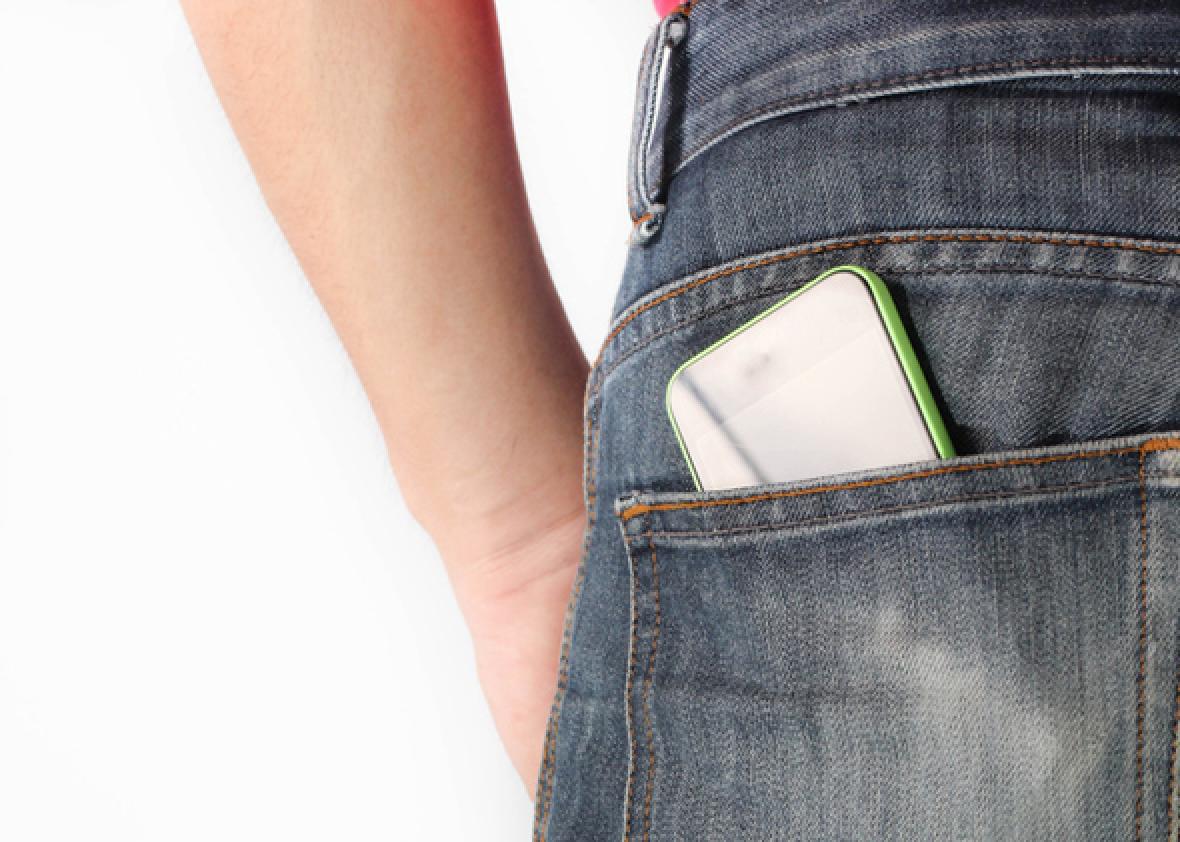If people want to spy on your calls they can tap your phone, but they don’t even have to if you inadvertently dial them yourself. And if you’re in the process of committing a crime, you probably shouldn’t let your smartphone call 911. Now a Cincinnati federal appeals court has ruled that if you accidentally butt dial someone you don’t have a reasonable expectation of privacy.
Last week, Judge Danny Boggs compared a butt dial (which he calls a pocket-dial) to leaving a window uncovered such that a neighbor or anyone else can peer in. He was deciding an appeal in a case in which an executive on the Cincinnati/Northern Kentucky International Airport board, James Huff, called the CEO’s assistant, Carol Spaw, finished the call, put his phone in his pocket, and then unintentionally called her back. During that second call, Huff started talking to another executive about replacing the airport’s CEO.* Spaw said hello a few times and tried to get their attention, but they were talking about her boss, so when that didn’t work she started recording the 91-minute call and taking detailed notes. Gotta do it.
By the end of call, Huff had met up with his wife, Bertha Huff, and he summarized what he had discussed with the other executive for her—just in case Spaw didn’t quite catch it the first time. After the incident, Spaw distributed the recording and her notes to other members of the airport board. The Huffs are the plaintiffs in the lawsuit.
There are a lot of strange things about this butt dial, which occurred in October 2013. As Bloomberg points out, it’s unusual not to check your phone for more than an hour, and as Gawker notes, it seems like even when Huff did finally identify the butt dial he didn’t actually terminate the call for two minutes. Of course, the difference between leaving your curtains open and calling someone by accident is intent. You open your curtains by choice, or should be able to clearly see that they’re open, as opposed to being oblivious to a butt dial. But Boggs wrote, “James Huff lacked a reasonable expectation of privacy in his statements only to the extent that a third-party gained access to those statements through a pocket-dial call that he placed.” (Emphasis preserved.)
Boggs notes that there are ways to prevent butt dials, like adding a numeric code or other lock screen. He wrote:
In sum, a person who knowingly operates a device that is capable of inadvertently exposing his conversations to third-party listeners and fails to take simple precautions to prevent such exposure does not have a reasonable expectation of privacy with respect to statements that are exposed to an outsider by the inadvertent operation of that device.
The discussion goes on to say that Bertha Huff did have a reasonable expectation of privacy, because she was speaking with her husband in their hotel room and should be able to expect that he hasn’t butt-dialed someone, just like she should be able to expect that he wasn’t intentionally recording their conversation. Boggs wrote:
If Bertha waived her reasonable expectation of privacy from pocket-dials by speaking to a person who she knew to carry a pocket-dial-capable device, she would also waive her reasonable expectation of privacy from recordings and transmissions by speaking with anyone carrying a recording-capable or transmission-capable device, i.e., any modern cellphone.
The case will go back to district court to determine whether Spaw is liable for recording Bertha Huff. If you’re not already locking your phone for security reasons (you should be), maybe it’s time to do it. Your butt can get you in a lot of trouble if you’re not careful.
*Correction, July 29: This post originally misidentified a speaker involved in a lawsuit about privacy expectations during cellphone pocket dials. Assistant to the CEO of Cincinnati/Northern Kentucky International Airport Carol Spaw was not talking to an executive during a phone call. Board member James Huff was.
